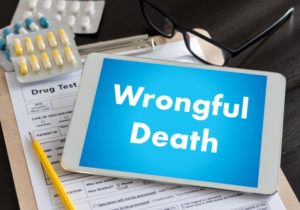Personal Injury Lawyer

At the point when you are harmed on the job, this can accompany a few frustrations like agony from said injury, and the powerlessness to work, which implies the failure to deal with your monetary obligations. All things considered, your employer at the time of injury usually has what is called workers compensation protection. Worker’s compensation protection is utilized to cover harms your job is expected to take responsibility for, which means a protection strategy that repays laborers that need help subsequent to being harmed on the job. This inclusion helps with doctor’s visit expenses in relation to the supported work injury, and to replace conceivable lost wages. Demonstrating an on-the-job injury is not as simple as an automobile accident. Its troubles differ from one job to another. On the off chance that it tends to be demonstrated that you experienced an injury in connection to your job and not brought about by your own ineptitude, you might have the option to pursue a workers compensation claim.
First of all, the injury you claim to have experienced on the job should be brought about by you doing your job properly or brought about by your employers’ carelessness or negligence. In certain examples, while not on organizations property, a harm while on the job may in any case be your bosses responsibility to cover. For example, going to an office related occasion, or delivering packages.
Worker’s compensation protection only covers official representatives, not self-employed entities, or undocumented employees.
Instances of business-related injuries that are normally covered by worker’s compensation are:
- Broken bones
- Loss of appendages
- Repetitive pressure
- Burning or long-lasting scarring
- Tissue injury
- Depression, stress, or uneasiness
Just as much as they were caused because of business related cases, you are covered by worker’s compensation as a rule.
Since it isn’t generally certain that the wounds endured are in direct connection to your job, it is an insurance agent’s job to view ways not to be found obligated for an injury. Being rewarded by worker’s compensation protection may take time. There are times where your injury just may not be covered. Rather than sorting it out on your own, it is ideal to talk with a gifted personal injury lawyer with experience with worker’s compensation cases. Refusing legal representation keeps you away from the capacity of being either exploited completely or not getting the appropriate recovery for your wounds, and conceivable torment and languishing. Talk with a personal injury lawyer in Atlanta, GA quickly, so you or your loved one can get the compensation they merit. Call The Law Offices Of Andrew Lynch, today!



